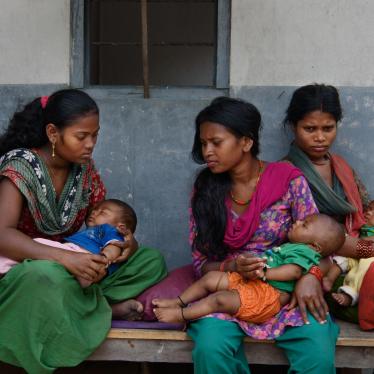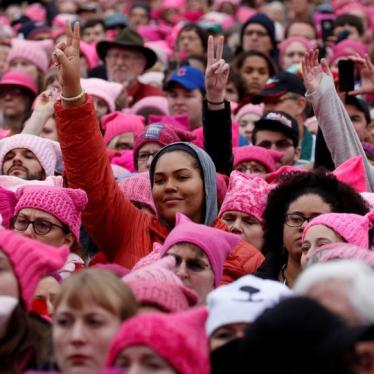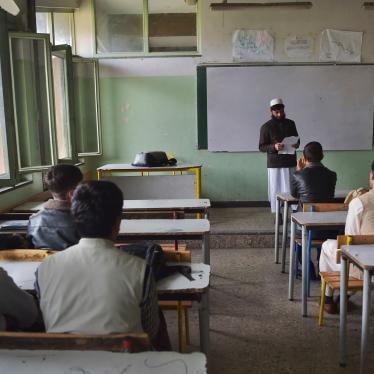Pamela was 13 years old when both her parents died in the 1990s as the AIDS pandemic inflicted death across East Africa. She sold sex to keep herself and her three younger siblings fed and alive. When she got pregnant she had no real choice but to get an abortion. Abortion is illegal in most instances in Uganda. Her second of three backstreet abortions almost killed her.
Now 24, Pamela [not her real name] works for a sex worker-led organization, fighting for women’s rights, sex workers’ rights, and access to anti-retroviral drugs and other lifesaving health care for her organization’s members. The job provides her with income, but also the satisfaction of working to increase choices for women and to minimize the risk of harm she knows from personal experience.
“I boiled washing powder, bleach and some herbs from the healer and drank that, I was so sick and bleeding so much,” she said about her second abortion. “Then I had to pay the healer back so I had to work in that condition.” Pamela knows many other sex workers who have been injured and some who have died because of unsafe abortions. She told me she wants injuries and deaths of poor women from unsafe abortion to end.
But her efforts are being stymied by the US Mexico City Policy—also known as the Global Gag Rule. In January, U.S. president Donald Trump reinstated this Republican policy which, starting in 1984, has been issued by every Republican administration. The rule is meant to target abortion providers by requiring foreign non-governmental organizations receiving U.S. global health assistance to certify that they do not use their own, non-U.S. funds to provide abortion services, except in cases of rape, incest or to save the life of the woman, counsel patients about the option of abortion or refer them for abortion, or advocate for the liberalization of abortion laws.
In the past, the Global Gag Rule applied to family planning funds, an estimated $575 million. Trump’s expansion extends it to an estimated $8.8 billion in U.S. global health assistance, including more than $5 billion disbursed through the President’s Emergency Plan for AIDS Relief (PEPFAR).
PEPFAR, a bipartisan initiative, has contributed significantly to HIV prevention and treatment across sub-Saharan Africa, and many countries, including Kenya and Uganda, depend on these funds heavily.
Pamela’s organization relies on PEPFAR funds to keep their office open. As a key strategy, PEPFAR has been supporting what are known as “key populations”—groups at the greatest risk of contracting HIV such as sex workers, intravenous drug users, and men who have sex with men.
When I spoke to Kyomya Macklean, who runs the Ugandan sex worker organization Alliance for Women Advocating for Change (AWAC), she told me, “Should we sign or not? One in three sex workers in Uganda are HIV positive. We need the money to keep our programs protecting them from HIV and getting them drugs … the U.S. government is the biggest donor by far for HIV/AIDS.”
But AWAC has also been advocating for Uganda to liberalize a very restrictive law on abortion and raising awareness on the dangers of unsafe abortion, which includes sharing information with women on how and where they can access safer services: an activity prohibited under the Global Gag Rule. “We constantly see women and girls dying or injured because of quack abortions. We need to fight for both issues, both are killing women,” Macklean added.
But she will have to choose.
PEPFAR’s website prioritizes the program’s support for the rights of sex workers to fight discrimination and stigma. The Global Gag Rule, however, directly undermines PEPFAR’s efforts to promote human rights.
Penina Mwangi runs Bar Hostess, a Kenyan sex worker organization that has between 15,000 and 20,000 members who they can connect to services provided by PEPFAR funds. “We will have to sign the Global Gag Rule, otherwise we would lose too much funding,” she said. “But it’s very hard [when] young girls and women are dying in the slums … we lose two to five girls a year to unsafe abortion.”
It is too early to know the full scope and impact of the Global Gag Rule on PEPFAR’s success. However, a resounding message from my research was that this policy sabotages trust with the “key populations” that are critical to ending the epidemic. Sex worker organizations fear the negative health repercussions for their members and resent the cruel choices they must make.
Since the White House will not roll back, or even modify, this draconian policy, it’s time for Congress to step up to the plate. Concerned members on both sides of the aisle should begin working toward a permanent repeal, even if such legislation won’t pass anytime soon. Starting the process now means that when the time is right, it’s ready to go.
In the meantime, PEPFAR should closely monitor the effects of the Global Gag Rule by consulting closely with the individuals and organizations they work with. They should investigate what these restrictions mean for the efficacy of PEPFAR’s programs, to the implementation of evidence-based “best practices” for health care, and to the dignity and safety of the people they serve as they seek to create an “AIDS-free generation.”










